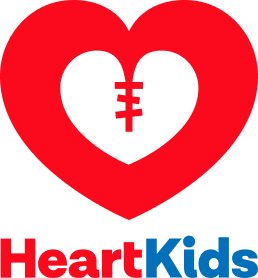Overview
Living with Childhood-onset Heart Disease (CoHD) can present some unique challenges, but it doesn’t mean you can’t lead an active lifestyle. Almost everyone living with CoHD can benefit from exercise.
All it takes is to find how to stay active in a way that suits your situation and helps your health. We recommend talking to your doctor or cardiologist, as they can advise which exercises are safe for you.
Below, we’ll explore the benefits of exercises for people living with CoHD and give some tips on how you can begin your journey.

Benefits of Exercise
Exercise has a wide range of benefits for your general health and well-being. These improvements can include:
- Increased Fitness and Strength: One of the immediate benefits that you will see is an increase in fitness and strength levels. Regular exercise can build muscle strength and stamina, allowing you to perform further activities.
- A Healthy Heart: Exercise can help reduce the risk of acquiring cardiovascular problems (such as high blood pressure, a stroke or heart attack).
- Healthy Weight and Body Image: Regular physical activity will help you maintain a healthy weight which is good for your heart health. This can also help improve your self-confidence and body image.
- Mental Health Well-being: Many studies have shown a link between exercise and improved mental health. This can range from being a general mood booster to helping reduce stress and anxiety.
- Meeting New Friends: Exercise provides some great opportunities to meet new people through a communal space such as the gym or various sports clubs. This can go a long way in creating supportive networks, especially if you meet other people living with CoHD.
How to Get Started with Exercising
Now that you have a better idea of what benefits exercise offers people living with CoHD, the only question that remains is: How do you get started?
Aerobic exercises such as walking, running, or swimming are perfect for helping to build your heart and respiratory system. On the other hand, strength exercises like weight training are ideal for building your muscle strength and endurance.
Guidelines for most Australians (aged 18-64 years) recommend at least 30 minutes of moderate exercise most days of the week. However, we also suggest starting slowly and setting yourself a realistic goal at the beginning. It can be as simple as taking the stairs rather than the elevator or walking instead of driving. You can keep building up these milestones and goals as your fitness improves. You could also organise an activity with a friend or a family member for extra motivation.
Staying Safe While Exercising
While exercising is a great way to improve your health, we also strongly recommend discussing this with your doctor beforehand as they may be able to provide suggestions about which activities are best suited to you. They may also refer you to a trained exercise physiologist or physiotherapist who can help you build a plan to improve your fitness safely.
References
- LONGMUIR, P., BROTHERS, J., DE FERRANTI, S., HAYMAN, L., VAN HARE, G., MATHERNE, P., DAVIS, C., JOY, E. & MCCRINDLE, B. 2013. Promotion of Physical Activity for Children and Adults With Congenital Heart Disease: A Scientific Statement From the American Heart Association. Circulation, 127, 2147-2159.
- DEPARTMENT OF HEALTH (2021). “Physical activity and exercise guidelines for all Australians.” Accessed May 2023. Available: Online



